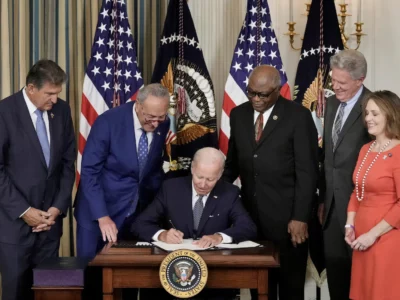Why a Bird in the Hand is Worth Two in the Bush — Especially When the Issue is Climate Change
Legal Planet: Environmental Law and Policy 2024-06-03

It’s an ancient dispute: Should we compromise on half-measures, or hold out until we can get something a lot better? Idealists argue for holding out. Pragmatist argue that half a loaf is better than none. Rather than rehearse familiar arguments, I want to focus specifically on climate change. In my view, holding out for ideal climate policies makes no sense. Because of the nature of climate change, delay is just too costly. When your house is on fire, you can’t wait to act until Amazon delivers your order for the perfect fire extinguisher.
Climate change is a unique problem in many ways. One of those ways could be summed up by saying “Carbon is Forever.” Forever is only a bit of an overstatement: NASA says CO2 stays in the atmosphere three hundred to a thousand years. So today’s carbon emissions will still be warming the planet far into in the future.
This fact makes delays in climate policy really costly. If we wait to get the stronger policy, we’re accumulating emissions that will stay in the atmosphere for centuries — in other words, doing permanent damage to the climate. Having dug ourselves into a deeper hole, it will take years before we get any real benefit from later adopting the ideal policy.
In reality, we can never be absolutely certain that rejecting half a loaf today will produce a full loaf someday. Nor can we be certain that getting the half loaf now means never getting the full loaf. If we reject compromise, we’re gambling that we’ll get a policy someday that’s worth piling on years of extra carbon debt.
In short, time is of the essence in climate policy. We can’t afford to load up the atmosphere with more carbon just in the hope that somehow, if we wait, we can get some ideal policy. What we really need is to act quickly, and that means grabbing every possible tool as fast as we can, even if some are far from ideal.